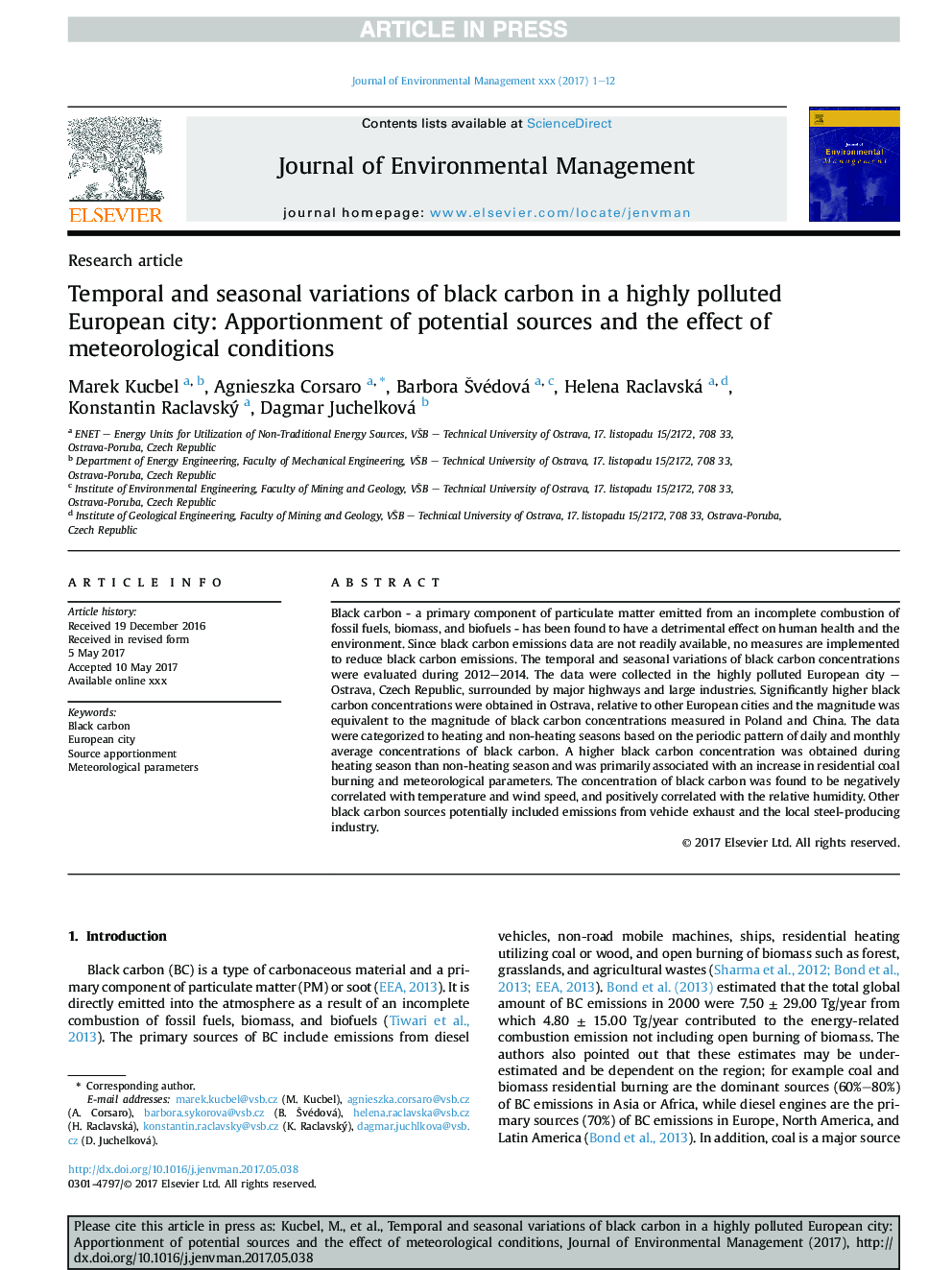| Article ID | Journal | Published Year | Pages | File Type |
|---|---|---|---|---|
| 5116395 | Journal of Environmental Management | 2017 | 12 Pages |
Abstract
Black carbon - a primary component of particulate matter emitted from an incomplete combustion of fossil fuels, biomass, and biofuels - has been found to have a detrimental effect on human health and the environment. Since black carbon emissions data are not readily available, no measures are implemented to reduce black carbon emissions. The temporal and seasonal variations of black carbon concentrations were evaluated during 2012-2014. The data were collected in the highly polluted European city - Ostrava, Czech Republic, surrounded by major highways and large industries. Significantly higher black carbon concentrations were obtained in Ostrava, relative to other European cities and the magnitude was equivalent to the magnitude of black carbon concentrations measured in Poland and China. The data were categorized to heating and non-heating seasons based on the periodic pattern of daily and monthly average concentrations of black carbon. A higher black carbon concentration was obtained during heating season than non-heating season and was primarily associated with an increase in residential coal burning and meteorological parameters. The concentration of black carbon was found to be negatively correlated with temperature and wind speed, and positively correlated with the relative humidity. Other black carbon sources potentially included emissions from vehicle exhaust and the local steel-producing industry.
Related Topics
Physical Sciences and Engineering
Energy
Renewable Energy, Sustainability and the Environment
Authors
Marek Kucbel, Agnieszka Corsaro, Barbora Å védová, Helena Raclavská, Konstantin Raclavský, Dagmar Juchelková,
